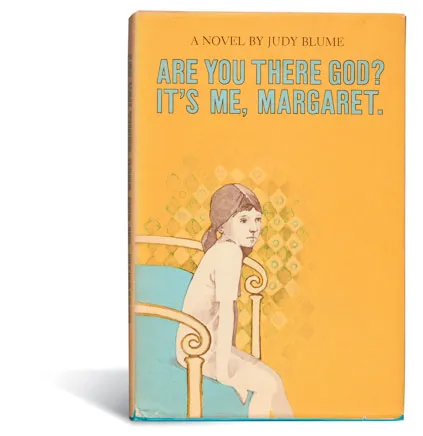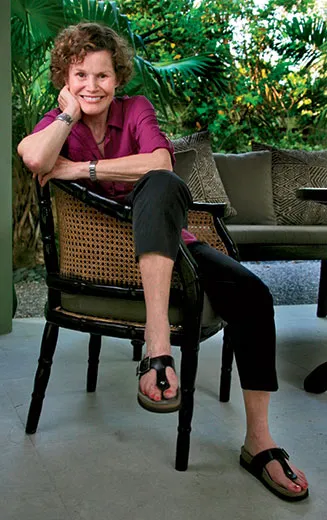Q and A: Judy Blume
The children’s book author speaks about her career and what it means to write a “banned book”
For decades, adolescents have found a sympathetic voice in the books of Judy Blume, who has dealt unflinchingly with coming-of-age issues such as bullying and teen sex. She recently received the John P. McGovern Award from the Smithsonian Associates for her contributions to the American family. Blume corresponded with the magazine’s Jeff Campagna via e-mail.
What do you think it is about your writing that has made your books become such integral parts of so many people’s childhoods?
I wish I knew. I'm grateful to my readers who can probably answer this question better than I can. Someone just wrote to say that Tiger Eyes, the movie we recently shot based on my book is intimate in the same way that my books are. Maybe that's it. But thinking about this is dangerous for me–because I don't really understand it, which can lead to worrying that I'll never be able to do it again.
What are three things about you that would surprise us?
I’m phobic about thunderstorms. Writing is incredibly hard for me. I’m not the world’s best mother, though kids always assume I must be. And I love a good cupcake. (I know, that makes four things, but I’m hungry and wishing I had that cupcake.)
Name one book you wish you’d written and why?
That's a hard question. There are so many good books. Looking up at my bookshelves I see Doris Lessing's Martha Quest. That's a book that has stayed with me since I first read it. It took me to another time and place. It made me think, question. It led me to seek out and read other books.
Do you plan which important life issue you will deal with in a book?
I always have some idea of the story I’m about to tell. I knew Davey’s father would die suddenly and violently in Tiger Eyes. I knew Rachel Robinson’s brother Charles would disrupt the family in Here’s to You, Rachel Robinson. With Are You There God? It’s Me, Margaret, I thought I was writing about organized religion, yet the book has become famous for dealing with puberty. Hardly anyone ever mentions religion or Margaret’s very personal relationship with God. There’s so much I don’t know when I start writing a book. That’s the best part of writing for me—the surprises along the way.
Which character from your books do you identify with the most?
Sally from Starring Sally J. Freedman as Herself. It’s my most autobiographical book. But I identify with all of my characters. A writer has to do so if she wants her readers to identify with them as well.
Four of your books are among the American Library Association’s Top 100 Banned/Challenged Books: 2000-2009. How do authors feel when they are added to this list?
I suspect many authors today are proud because those who challenge their books don’t do so unless they aren’t already popular. But when my books were first attacked in the early 1980s, there was no list and I felt no pride—only anger, sadness and a sense of isolation.
You’ve written for a wide range of ages. Have you developed a preference for a certain age group at this point?
I like the 12-and-under set and also the adult voice. Yet here I am writing a long, complicated novel from various viewpoints, all of them teenagers in the ’50s. I think it has more to do with not repeating myself than anything else. I need challenges in my work.
You’ve become an outspoken advocate for intellectual freedom.
It feels much better speaking out. Finding the NCAC (National Coalition Against Censorship) was a life-changing event. I realized I wasn’t alone—which is funny, because that’s what my readers often say to me.
Editor's Note: Due to an editing error, we originally attributed the Ramona books to Judy Blume. They were written by Beverly Cleary. We apologize for the error.
/https://tf-cmsv2-smithsonianmag-media.s3.amazonaws.com/accounts/headshot/Jeff-Campagna-240.jpg)


/https://tf-cmsv2-smithsonianmag-media.s3.amazonaws.com/accounts/headshot/Jeff-Campagna-240.jpg)